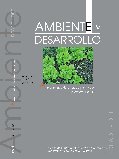Abstract
Este trabajo muestra los aspectos técnicos y económicos del maricultivo de algasproductoras de ficocoloides o gomas marinas. Se emplearon dos sistemas de cultivoen cuatro diferentes localidades habitadas por comunidades de pescadores Wayúu delos corregimientos del Cabo de La Vela y Carrizal, península de La Guajira, Colombia.Se determinó la productividad y tasa de crecimiento de tres especies de macroalgasde interés comercial, así como los costos de producción, inversión y rentabilidad degranjas marinas de 0.5 ha, tomando en cuenta el diseño y construcción de unidadeshechas con materiales e insumos de bajo precio y fácil acceso. La implementaciónde estos sistemas y métodos de cultivo podría servir de base para la transferenciatecnológica a las comunidades locales. Los ingresos que se generen por medio de lamaricultura de algas podrían beneficiar a una buena parte de los pobladores debidoa que serían recursos adicionales y complementarios a sus actividades tradicionalescomo la pesca artesanal y cría de caprinos, en vista de que la gran mayoría vive encondiciones de extrema pobreza y presenta uno de los índices de necesidades básicasinsatisfechas más altos de país.Ambiente y Desarrollo is registered under a Creative Commons Attribution 4.0 International Public License. Thus, this work may be reproduced, distributed, and publicly shared in digital format, as long as the names of the authors and Pontificia Universidad Javeriana are acknowledged. Others are allowed to quote, adapt, transform, auto-archive, republish, and create based on this material, for any purpose (even commercial ones), provided the authorship is duly acknowledged, a link to the original work is provided, and it is specified if changes have been made. Pontificia Universidad Javeriana does not hold the rights of published works and the authors are solely responsible for the contents of their works; they keep the moral, intellectual, privacy, and publicity rights.
Approving the intervention of the work (review, copy-editing, translation, layout) and the following outreach, are granted through an use license and not through an assignment of rights. This means the journal and Pontificia Universidad Javeriana cannot be held responsible for any ethical malpractice by the authors. As a consequence of the protection granted by the use license, the journal is not required to publish recantations or modify information already published, unless the errata stems from the editorial management process. Publishing contents in this journal does not generate royalties for contributors.


